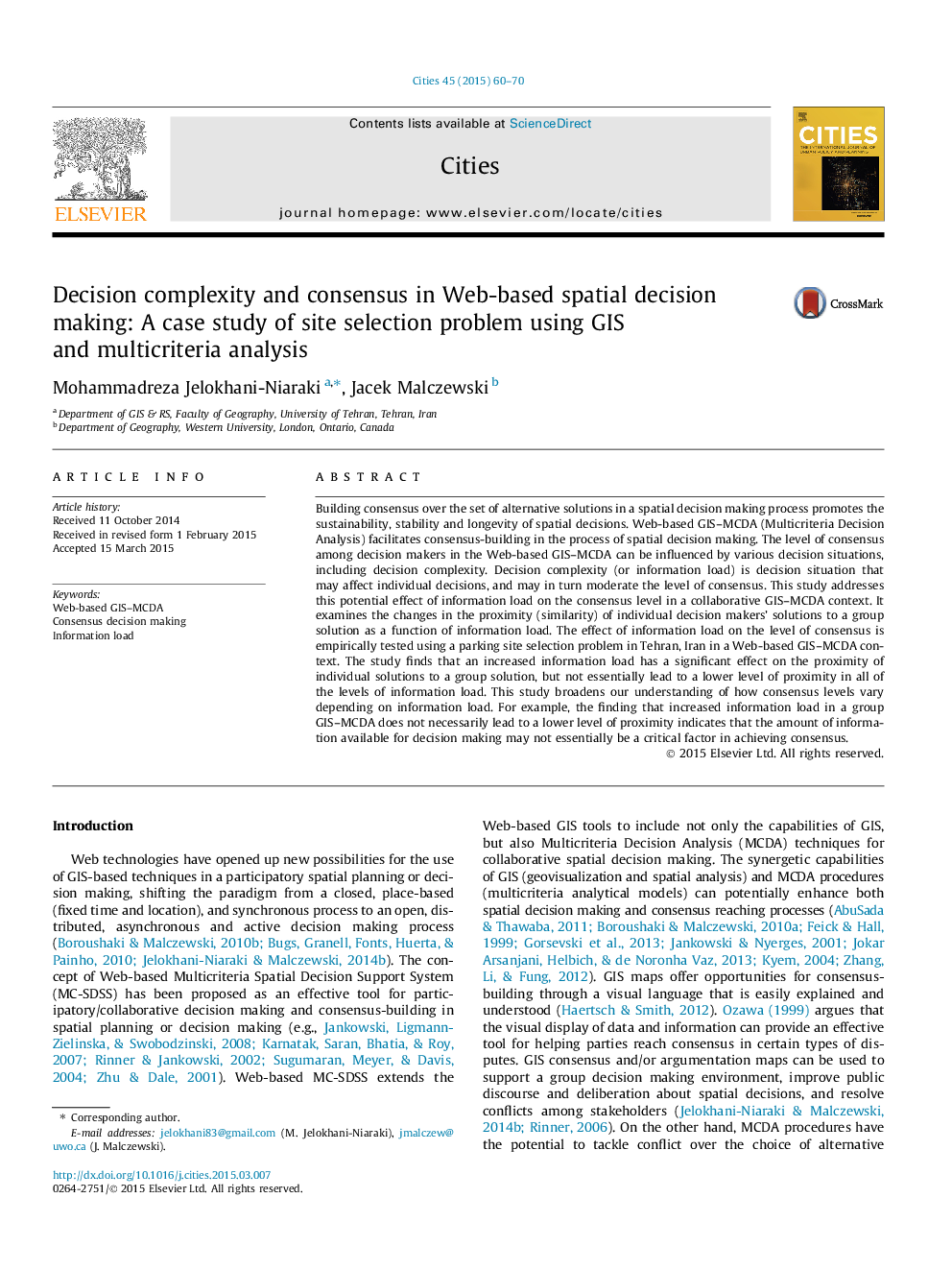| Article ID | Journal | Published Year | Pages | File Type |
|---|---|---|---|---|
| 7418512 | Cities | 2015 | 11 Pages |
Abstract
Building consensus over the set of alternative solutions in a spatial decision making process promotes the sustainability, stability and longevity of spatial decisions. Web-based GIS-MCDA (Multicriteria Decision Analysis) facilitates consensus-building in the process of spatial decision making. The level of consensus among decision makers in the Web-based GIS-MCDA can be influenced by various decision situations, including decision complexity. Decision complexity (or information load) is decision situation that may affect individual decisions, and may in turn moderate the level of consensus. This study addresses this potential effect of information load on the consensus level in a collaborative GIS-MCDA context. It examines the changes in the proximity (similarity) of individual decision makers' solutions to a group solution as a function of information load. The effect of information load on the level of consensus is empirically tested using a parking site selection problem in Tehran, Iran in a Web-based GIS-MCDA context. The study finds that an increased information load has a significant effect on the proximity of individual solutions to a group solution, but not essentially lead to a lower level of proximity in all of the levels of information load. This study broadens our understanding of how consensus levels vary depending on information load. For example, the finding that increased information load in a group GIS-MCDA does not necessarily lead to a lower level of proximity indicates that the amount of information available for decision making may not essentially be a critical factor in achieving consensus.
Keywords
Related Topics
Social Sciences and Humanities
Business, Management and Accounting
Tourism, Leisure and Hospitality Management
Authors
Mohammadreza Jelokhani-Niaraki, Jacek Malczewski,
